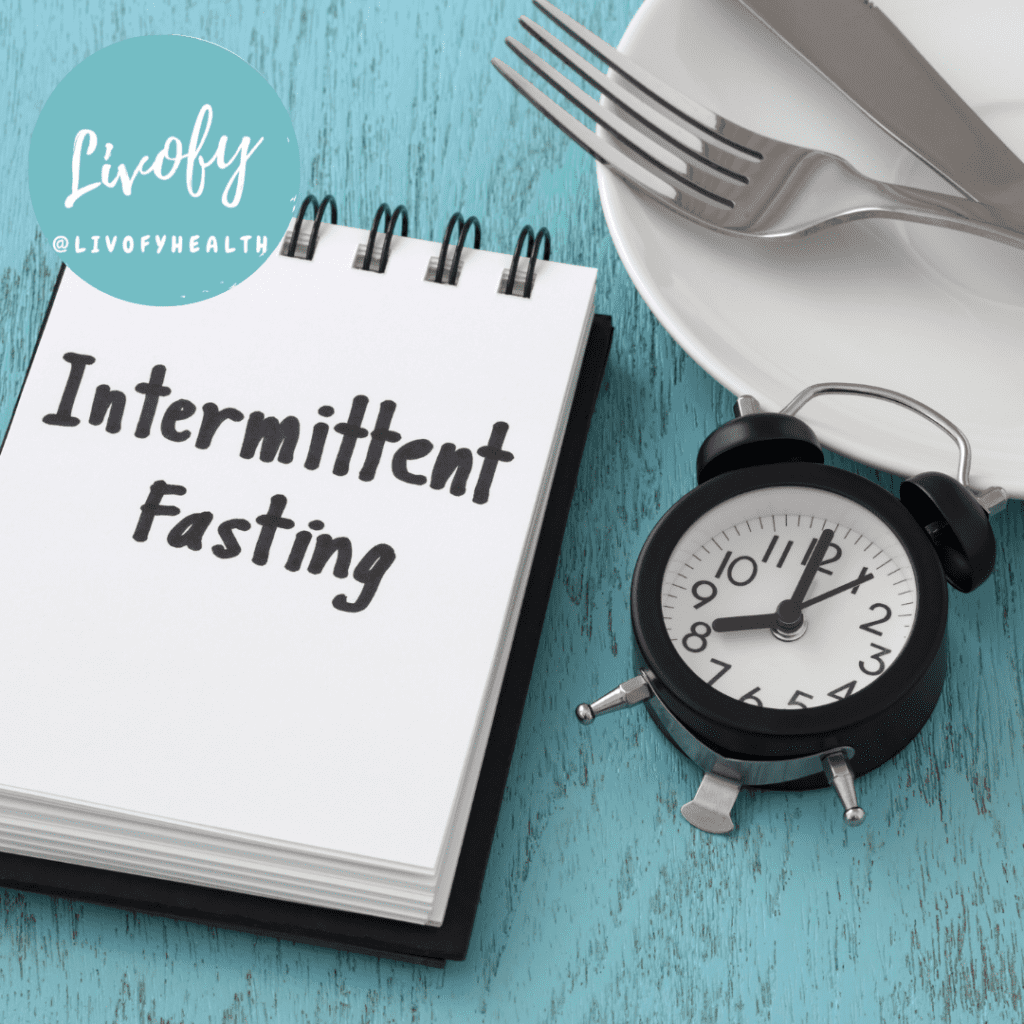Intermittent fasting is an effective way to lose weight, other than the 7 days weight loss plan. However, to determine whether or not you need to lose weight, you must check your BMI through a BMI calculator. It is worth noting that intermittent fasting benefits are not just restricted to weight loss. Here, we shall understand what is intermittent fasting, how it benefits you and what are its different types of schedules.
What is Intermittent Fasting?
Intermittent fasting is a diet that alternates between eating and fasting intervals. It focuses on when to eat than what to eat. It has many health benefits like improving metabolic function and reducing inflammation. However, some people with certain medical conditions, pregnant women, and nursing mothers might not be able to follow it. One must speak with a healthcare professional before starting any new fasting routine. For women suffering from PCOS, you can consider intermittent fasting for PCOS, which might also help reduce hair loss. Read more about how to reduce PCOS-related hair loss.
Here, we shall learn about intermittent fasting benefit, different intermittent fasting techniques, the best intermittent fasting for weight loss and the like.
Intermittent Fasting—Isn’t That Starvation?
Intermittent fasting is not the same as starvation. The long, unintended and forced deprivation of calories is known as starvation. It might lead to malnutrition and serious health problems.
Intermittent fasting, on the other hand, is the conscious practice of alternating between periods of not eating and eating. In order to stay hydrated and maintain their electrolyte balance during fasting, people should continue to consume water and other calorie-free liquids. Moreover, practicing intermittent fasting may have a number of health benefits, such as improved metabolism, reduced inflammation, and weight loss. Each intermittent fasting diet plan may vary depending on individual preferences and goals. Study and choose the best intermittent fasting for weight loss before following one.
How does Intermittent Fasting Work?
Intermittent fasting reduces the calories consumed over the course of 24 hours by reducing the window of time during which one can eat. One can use a Food Calorie Calculator to count the calories in their meals.
During a fast, the body replaces meals with fat and stored glucose. After about 12 hours of fasting, the body’s stored glucose starts to deplete and it begins to rely increasingly on its fat stores for energy. This might lead to weight loss over time.
Does intermittent fasting loosen metabolism? Intermittent fasting may have an impact on hormones, metabolism and hunger.
Furthermore, if you are vegan, you can also consider doing intermittent fasting since there is more than one intermittent fasting benefit.
How Intermittent Fasting Affects Your Cells and Hormones
- Intermittent fasting may lead to lower insulin levels. By doing so, it can help to reduce the risk of type 2 diabetes.
- Intermittent fasting also help to increase the Human Growth Hormone levels in the body. Higher levels of this hormone can help with weight loss and muscle gain.
- Intermittent fasting can trigger autophagy, which is used for cellular repair.
- Numerous studies suggest that intermittent fasting may help slow down aging and reduce the risk of age-related disorders.
- Intermittent fasting can help to reduce inflammation in the body.
Intermittent Fasting for Weight Loss
Intermittent fasting weight loss plans can be effective for a lot of people. By reducing the amount of time when one can eat, it can help reduce total calorie intake and promote fat loss.
There are many strategies to lose weight through intermittent fasting. The 16/8 approach is one such strategy that includes eating in an 8-hour window each day and fasting for the other 16 hours. The 5:2 diet is another technique, which recommends eating as usual for five days a week and restricting your calorie intake to between 500 and 600 on the other two.
Studies show that intermittent fasting can aid weight loss. Moreover, it might also be easier for some people to follow because of the greater food choices and it being easy to be included in a busy schedule.
It’s important to choose the best intermittent fasting for weight loss after good research. Before starting any new intermittent fasting diet plan, consult a healthcare provider. Moreover, it’s important to have a balanced diet throughout the periods of eating so that the body receives all of the essential nutrients it needs.
6 Popular Intermittent Fasting Schedules
It’s imperative to remember that your fitness goals, lifestyle, and health condition are all factors to be considered before determining the best intermittent fasting schedules for you. There are a variety of intermittent fasting schedules available. These are as follows:-
The 16/8 Technique
The 16/8 strategy, is one of the types of intermittent fasting, which includes eating within an 8-hour window and fasting for the remaining 16 hours. During the fasting period, one may drink water, tea, or coffee but not eat anything. This strategy prevents late-night snacking, restrict calorie intake and helps lose weight. Additionally, the fasting period can aid in cellular repair, reduce inflammation, and improve insulin sensitivity. The most well-known and effective intermittent fasting for weight loss is this one.
5:2 fasting
The 5:2 fasting technique is another type of intermittent fasting schedule that includes cutting down on calories for two days of the week and eating normally on the other five. This method might be an effective way to reduce calorie consumption and aid weight loss. It might also be easier for some people to follow given it has more food choices. This may be the most effective intermittent fasting diet plan.
Alternate-day fasting
Alternate-day fasting refers to an intermittent fasting schedule that alternates between days with no food restrictions and days that include complete or partial fasts. Alternate-day fasting can not only reduce calorie intake and aid weight loss but it might improve blood pressure, cholesterol, and inflammation. This might be the simplest intermittent fasting diet plan to follow.
Fast for 12 hours a day
The 12-hour fasting is a kind of intermittent fasting schedule that includes eating within a 12-hour window and fasting for the rest 12 hours. By using this, you can lower your calorie intake without having to give up any meals or macronutrients. It is also a less strict fasting technique that might be flexible for some. It is considered to be one of the most convenient intermittent fasting diet plans.
Daily time-restricted fasting
In a daily time-restricted intermittent fasting schedule, you restrict your eating window to a certain time each day, and fast for the remaining hours. This daily intermittent fasting weight loss diet plan is very doable and effective.
Fasting for 16 hours
This typical method of intermittent fasting includes eating just within an 8-hour window and going without food for 16 hours each day. For example, an individual might eat between 12 p.m. and 8 p.m. and then abstain from food and drink until 12 p.m. the following day. This intermittent fasting diet plan might be an effective technique to reduce calorie intake and promote weight loss. Research suggests that it may also aid in reducing inflammation, improving insulin sensitivity, and controlling blood sugar.
What Liquids Can I Drink While Fasting?
You can include a variety of liquids in your intermittent fasting diet plan such as plain water, tea, or coffee. Some people might also consume other non-caloric liquids like herbal tea, sparkling water, or zero-calorie drinks. However, it’s essential to consume them in moderation. Certain beverages that one should avoid include fruit juices, smoothies, milk, and sweetened beverages because they can break a fast and interfere with the metabolic state needed for fasting to be effective.
Food To Open Fast?
It’s important to focus on consuming a balanced diet that includes protein rich fruits, healthy fats, and fiber rich foods to help regulate blood sugar levels and keep you feeling full and satisfied, in order to open an intermittent fast.
Some good options for breaking an intermittent fast include:
- Protein rich foods such as eggs, chicken, fish, or tofu
- Healthy fats such as avocado, nuts, seeds, or olive oil
- Leafy greens, broccoli, cauliflower, or Brussels sprouts
- Whole grains such as brown rice, quinoa, or whole-grain bread (know more about Bread Nutrition)
What are the health benefits of intermittent fasting?
There are a number of health benefits to intermittent fasting. It might as well benefit people with thyroid problems.Here are some of its benefits:
- Weight loss: One major intermittent fasting benefit is weight loss. In fact, intermittent fasting for weight loss is the best approach. Intermittent fasting diet plans can be helpful for weight management because it lowers the overall calorie intake and promotes fat loss while retaining muscle mass. By limiting the periods of eating, intermittent fasting can help you create a calorie deficit which can lead to weight loss.
- Improves physical performance: Another important intermittent fasting benefit is improvement in physical performance. Intermittent fasting may improve physical performance, particularly when working out. Studies have shown that intermittent fasting may increase the levels of human growth hormone (HGH) in the body, which is important for muscle growth and repair, insulin sensitivity and nutrition uptake by muscles. Intermittent fasting may also lead to increased stamina and endurance while also improving exercise performance.
- Inflammation: Studies suggest that intermittent fasting helps reduce inflammation in the body which may help reduce the risk of acquiring illnesses like diabetes, cancer, and heart disease. Intermittent fasting reduces oxidative stress which leads to a reduction in inflammation. Thus, preventing or reducing inflammation can be considered another intermittent fasting benefit.
- Heart health: There are a number of possible advantages to intermittent fasting for heart health. One of the ways in which intermittent fasting improves heart health is by reducing the risk of heart diseases and factors such as including high blood pressure, high cholesterol, and high triglycerides. According to research, intermittent fasting helps increase the “good” cholesterol and reduces the “bad” cholesterol. Hence, enhancing heart health may be another intermittent fasting benefit.
- Cancer: Even though more research is required in this area, there are claims that intermittent fasting may be helpful to treat cancer. In addition, intermittent fasting may also lower oxidative stress and inflammation. This may help prevent the spread of numerous cancers, including breast cancer. This is a significant intermittent fasting benefit that should be taken into account when considering its advantages.
- Improves thinking and memory: According to research, intermittent fasting may enhance mental capacity and brain health. Intermittent fasting has the potential to increase the creation of BDNF, a protein essential for the growth and survival of neurons.
- Anti-aging: Intermittent fasting has been studied for its potential anti-aging effects. Promoting the activation of genes and pathways involved in cellular repair and regeneration is one of the mechanisms via which it may have anti-aging effects. Additionally, intermittent fasting has been demonstrated to lessen oxidative stress, a significant contributor to aging.
Tips for maintaining intermittent fasting
Here are some quick tips for your intermittent fasting diet plan:-
- Start slow: Start by fasting for shorter durations, such as 12–14 hours, then gradually extend your fasts as time goes on.
- Stay hydrated: Drink lots of water, herbal tea, and other calorie-free liquids throughout your fast to stay hydrated.
- Eat a well-balanced diet: To make sure you are getting all the nutrients your body requires, make sure to eat a well-balanced diet throughout the day.
- Plan your meals: Plan your meals in advance to prevent impulsive eating and bad food selections.
- Listen to your body: If you experience weakness or lightheadedness when fasting, pay attention to your body. You may need to interrupt your fast or shorten it.
- Stay busy: To help you keep your thoughts away from food during your fast, keep yourself occupied and distracted.
- Stay accountable: To help you stay motivated, ask a buddy or member of your family to join you during your fast, or utilise a fasting app.
What Is the Difference Between the Keto Diet and Intermittent Fasting?
There are two distinct methods for shedding pounds and enhancing general health: the keto diet plan and the intermittent fasting weight loss diet. Even if there might be some parallels in terms of weight loss, their methods and mechanisms are different.
The keto diet calls for eating a high-fat, low-carbohydrate diet in order to achieve a metabolic condition known as ketosis, in which the body burns fat for energy instead of carbohydrates. This is achieved by boosting fat consumption to about 70–80% of total calories consumed and drastically lowering carbohydrate intake (often less than 50 grammes per day). Long-term adherence to the ketogenic diet can be difficult and calls for careful monitoring of macronutrient intake.
Contrarily, the practise of intermittent fasting involves setting temporal limits on how much food is consumed. Examples of other forms of intermittent fasting include the 16/8 method, which restricts food consumption to an 8-hour window each day, and the 5:2 approach, which limits calorie intake to 500–600 calories on two different days each week. However, when practising intermittent fasting, discipline and restraint are required during periods of food restriction.
FAQs
Is intermittent fasting safe?
For healthy adults, intermittent fasting schedules can be safe. However, it is always advised to speak with a medical expert before beginning any new intermittent fasting weight loss diet or exercise routine, particularly if you take medication or have any pre-existing medical conditions. Overall, an intermittent fasting diet plan can be a secure and efficient strategy to enhance health and well-being if carried out correctly and under the direction of a healthcare practitioner.
Can intermittent fasting help with weight loss?
Intermittent fasting weight loss plans are indeed quite reliable for losing weight! One of the main intermittent fasting benefit is weight loss. When you fast, your body is compelled to use fat that has been stored as fuel, which may result in weight loss. Additionally, since people frequently consume fewer calories during times of restricted eating, intermittent fasting schedules can result in a decrease in overall calorie intake. However, before beginning an intermittent fasting diet or any other diet plan, it is crucial to consult a healthcare provider.
What are the different types of intermittent fasting?
There are a number of ways to follow an intermittent fasting diet plan. The following are some of the popular forms of intermittent fasting:
- During Time-restricted feeding, you limit your daily eating window to a specific number of hours while fasting the rest of the time.
- Alternate-day fasting entails cutting calories to almost nothing on the days you fast and eating regularly on the days you don’t.
- 5:2 fasting strategy entails eating regularly for five days of the week and limiting calorie intake to between 500 and 600 calories on two separate days.
How do I start intermittent fasting?
There is more than one intermittent fasting benefit and one should definitely consider doing it. Here are some ways to start it:-
- Choose an intermittent fasting schedule
- Set realistic goals.
- Drink plenty of water during both fasting and non-fasting periods.
- Plan your intermittent fasting diet plan in advance to ensure you are getting enough nutrients
- Be patient. It may take some time for your body to adjust to intermittent fasting.
- Consult a healthcare professional













